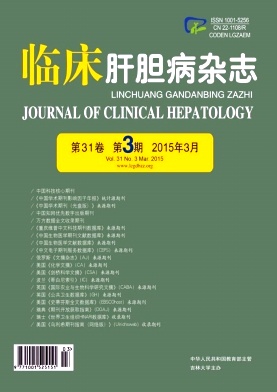Objective To explore the value of ultrafast pulse wave velocity( UFPWV) technique in the quantitative evaluation of carotid artery elasticity in patients with cirrhosis. Methods Forty- three patients diagnosed clinically with cirrhosis in our hospital from September2013 to June 2014 were enrolled as subjects. Seventy- one healthy physical examinees within the same period were used as controls. The cirrhosis group matched the control group in terms of age and gender. The intima- media thickness( IMT) and elasticity parameters of the bilateral carotid arteries were measured by the UFPWV technique. The elasticity parameters included the pulse wave velocity at the beginning of the systole( PWVBS) and the pulse wave velocity at the end of the systole( PWVES). Comparisons of IMT and elasticity parameters between the two groups were made by t test,and the relationship between elasticity parameters and IMT in the cirrhosis group was analyzed using Pearson correlation. Results The carotid artery IMT,PWVBS,and PWVESin the cirrhosis group were significantly larger than those in the control group( t = 12. 233,P < 0. 001; t = 6. 388,P < 0. 001; t = 6. 681,P < 0. 001). In the cirrhosis group,PWVBSand PWVESwere positively correlated with IMT( r = 0. 248,P < 0. 001; r = 0. 383,P < 0. 001). Conclusion The carotid artery elasticity in patients with cirrhosis is lower than that in healthy people. The UFPWV technique can quickly measure the local PWVBSand PWVESof carotid artery in patients with cirrhosis,which provides a novel and convenient method to evaluate vascular elasticity in patients with cirrhosis.














 DownLoad:
DownLoad: